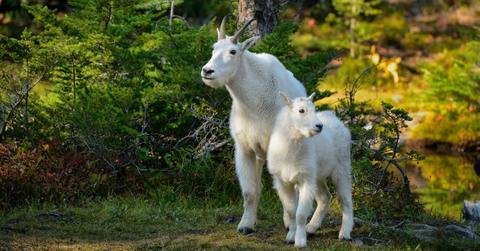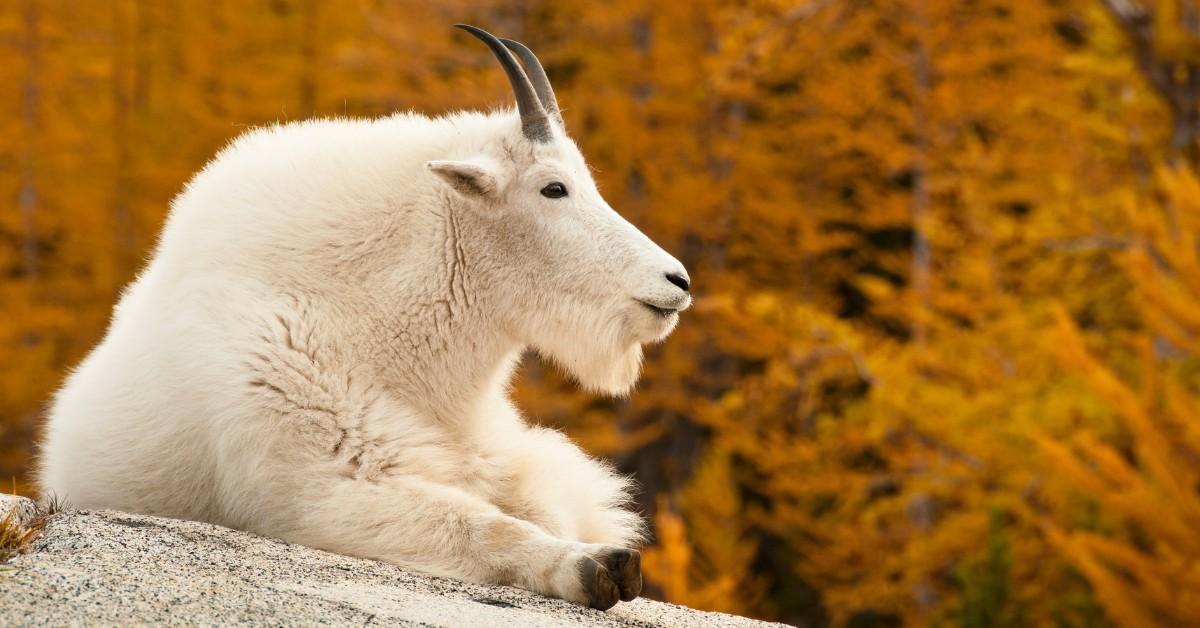Climate Change Hinders Mountain Goat Relocation Program
The goal of the relocation project was to reestablish mountain goat populations in the Cascade Mountains.
Published May 24 2024, 12:56 p.m. ET

A massive undertaking by researchers in Washington state seems to have come to a sad end, as experts reveal that a reintroduction project for mountain goats being relocated from one mountain to another has largely failed.
Despite having the best intentions and loads of resources — the project was a collaboration between the National Park Service, state Department of Fish and Wildlife and U.S. Forest Service, and local tribes — experts say they have lost a staggering number of goats in the process. Here's everything we know about the relocation attempt, including why climate change may be largely to blame for the string of mountain goat deaths.

A study reveals that relocated mountain goats aren't surviving in their new homes.
The group — who were attempting to remove the goats from their non-native habitat in the Olympic National Park order to reestablish populations in the Cascade Mountains, where they once roamed freely — told NBC News that most of the goats they had been tracking since beginning the project in 2018 had died.
Of the sample group of 217 goats that wildlife biologists had been following since the move, 165 were verified as deceased by December 2022. Of course, not all of the mountain goats were monitored after being relocated, but this information tracks with the study published in September 2023, which said that the survival rates for "translocated" goats was just 56 percent.
While the prospects that the goats would survive were slim to start, the experts agreed that they should at least try to do something since the goats were beginning to do some damage to native plants located within the Olympic Mountains, and there had been at least one human death as a result of their presence there.
How are mountain goats transported?
In order to move so many goats over such a large distance, experts captured the creatures and blindfolded them before hooking them up to a harness, which was carried by a helicopter to airdrop them into their new homes. The process was expected to be difficult for the goats, and researchers believed that they would have a hard time settling in, adapting to their new territory, and even finding resources during their first winter there.
That being said, the researchers didn't expect things to end so poorly for the goats after the transition.
How are mountain goats affected by climate change?
But, it wasn't just the translocated goats that had a hard time. When looking into why so many of the relocated ones had died, researchers found that the existing population was dwindling as well, something they blamed on climate change. The changing weather had a huge impact on all mountain goat populations since the alpine meadows where the goats feed all summer need a cool spring and ample snowmelt to survive.
Thanks to climate change, those conditions don't really occur as much anymore, and now the area sees a higher than normal snowfall in the winter followed by rapid snowmelt in the spring, leaving those meadows dry and bare. This is something experts worry will only continue, endangering Washington's entire mountain goat population in the process and raising questions about the continued existence of mountain goats in the state's vast mountain chains.